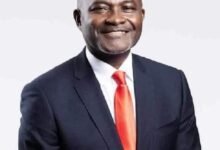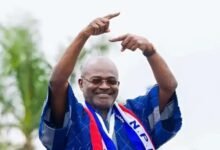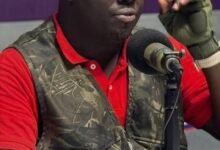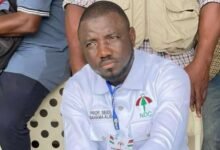Afriyie Ankrah raises concerns over increasing partisanship in student politics

Elvis Afriyie Ankrah, the Director of Elections for the National Democratic Congress (NDC), has questioned the increasing nature of partisanship among student politics in contemporary Ghana.
He advised student leaders to refrain from such unhealthy practice and rather place prime focus on the welfare of students who were their main constituents and not serve the interest of any political party.
“Students and their leaders should learn to be objective on national issues, irrespective of their political, social or any other background and be truthful always in order not to engage in divisive tendencies to break their front,” Mr Ankrah warned.
He appealed to the students who were about to graduate from various tertiary institutions to aim not to be like any other ordinary person or citizen on the road but be critical of issues, analyse and make independent and objective decisions irrespective of their political party affiliations.
Mr Ankrah, a former Minister of Youth and Sports and Local Government and Rural Development, was the Student Representative Council(SRC) President of University of Ghana and also the Coordinating Secretary of the National Union of Ghana Students (NUGS) in the 90s.
According to him, it was during his leadership as SRC President at University of Ghana Legon that he led the formation of Radio Universe and as a Pro-NDC student leader, he worked against all odds, contradictions and performed his duties diligently, effectively and efficiently to the admiration of students and the citizenry in general.
Mr Ankrah noted that though the NDC was in power during his tenure as a student leader, he led 11 separate demonstrations against the government at the time and during one of such demonstrations, he led students to blockade the Ministry of Finance in one of the most iconic student efforts ever in the history of the Fourth Republic.
He touted that his actions led the government to respond to the needs of students and admonished students, academia and intellectuals to desist from being like some party ‘aparaches’ and ‘foot soldiers’ going in any direction just because their political party asked them to do so.
Mr Ankrah observed that if they took bold, decisive, objective and prudent decisions it would reduce the increasingly nature of student politics in contemporary Ghana so that the progress, growth and development of the country would not be stalled.






